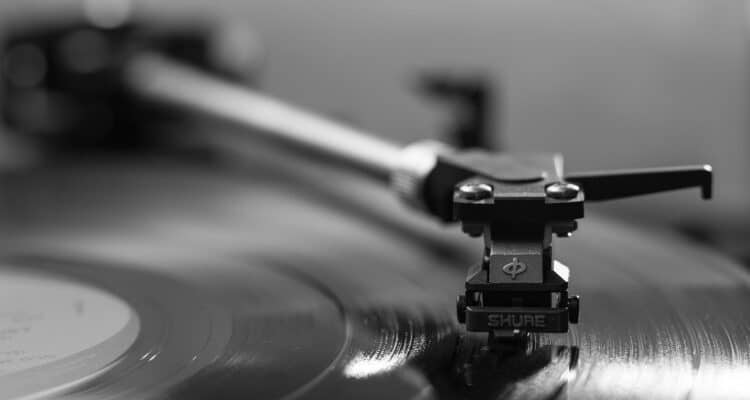1971, Michigan, USA. Jimmi Hendrix, Janis Joplin, Crosby, Still, Nash and Young, but mostly Santana’s vinyls were constantly played in my cozy bedroom at the Morgan’s family house, in Constantine. Back home, in São Paulo, Brazil, whenever I longed for my days as an exchange student, all I had to do was to play records to get into the time tunnel and feel again the stimulating atmosphere of my semester as a sophomore student in High School. During my stay, not only I had been introduced to contemporary and classical US authors, I started keeping journals. It would be a first step to my life path as a professional writer and translator.
Music has always inspired my ideas and memories, putting me in a creative mind set. However, I cannot forget the day I was introduced to the Guarani healing songs. I had just met Olivio Jekupe, an outstanding Guarani writer during a book fair. I accepted his invitation to visit his family and this is when he introduced me to Karai, a young xaman, whose magical voice seemed to soothe my soul. I had heard indigenous Xavantes music before, because my father had always brought recorded tapes from his yearly stays at their lands. I had spent my childhood listening to his deep belief in Indigenous people’s traditional wisdom, their stories and ecological ways. By the time I met Olivio I had already worked with the Ticuna’s writers in the Amazon forest, I had also developed a deep exchange and friendship with Daniel Munduruku, one of the most acclaimed Brazilian writers, but I had never experienced Guarani sound healing and it took my breath away.
Every book I have written has its secret soundtrack. Some years later I felt like researching Troubadours. At first, I just wanted to translate some of their lyrics and maybe write a short fairy tale. As I listened to several classical presentations online, I came upon the most amazing video: “The Song of the Golden Dragon” by Estas Tonne, an extraordinarily gifted musician. I saw it over and over imagining all sorts of dragons, trying to unveil their plots and mysteries. When I visited Estas’s website I also enjoyed the musician’s quotes and interviews. I sensed he was a true Troubadour: a storyteller and a musician. I wrote to him and this is how our long time creative exchange started.
Eventually, Estas came to Brazil, along with Giedrius Dagys and Olivio invited him to meet his family. The Guarani preserved lands are just a two hour drive from São Paulo downtown. Entering the rainforest late afternoon to find Olivio’s son, Owera and his brother Tupã playing by the fire was unforgettable. Estas joined the kids and started improvising over the healing song they were singing. Estas also played his magical guitar at the Guarani praying house. And I asked myself a new question: how many layers of perception can music unfold?
It was such a memorable moment that I tried to convey some of its enchantment in a chapter of my new book entitled The Musician. During The Musician’s creative process, Estas and I exchanged ideas about the healing gift of music, how do people relate with professional artists, the beautiful side of it, but also its downfall. Childhood memories were constantly in our talks and I told Estas about my father´s words: “When the world is ravished due to human foolishness, indigenous people will be the new leaders because only they can follow the path of the stars.”
The Musician found its way into words through a thrilling narrative imprinted by a deep, poetic exchange, from 2017 to 2022. During these years, Owera became worldly known as a Guarani rapper, Estas constantly increased his audience, having composed so many more mesmerizing songs and produced magical musical videos. I wrote new books reaching the number of 92 titles published in Brazil. This semester he will play along with former Santana’s drummer, Michael Shrieve. Listening to both of them will certainly feel like completing a round circle to me. As the Guarani xaman told us: “A musician and a healer share the same path; they spend their lives traveling, speaking beyond words, and rescuing ancient memories of wisdom and hope from people’s hearts.”
In the realm of timeless music, I believe the same words could apply to us, the storytellers.
Dr. Heloisa Prieto is one of Brazil’s most celebrated children and YA authors. She has sold over two million books in her native country. Her Mano series of YA novels inspired the Time Warner movie The Best Things in the World. She recently published 1,002 Ghosts, and her book Viajantes do Vento was selected for the PNLD Public Book-Purchasing Programme, the biggest of its kind in the world. She has spent a lifetime researching myths and legends-both ancient and modern-and organizing and curating collections of cross-cultural interest. She has created and organized numerous creative writing workshops for children, teenagers, and adults. Heloisa also has a PhD in French literature (University of São Paulo) and a master’s degree in semiotics (Catholic University of São Paulo).


